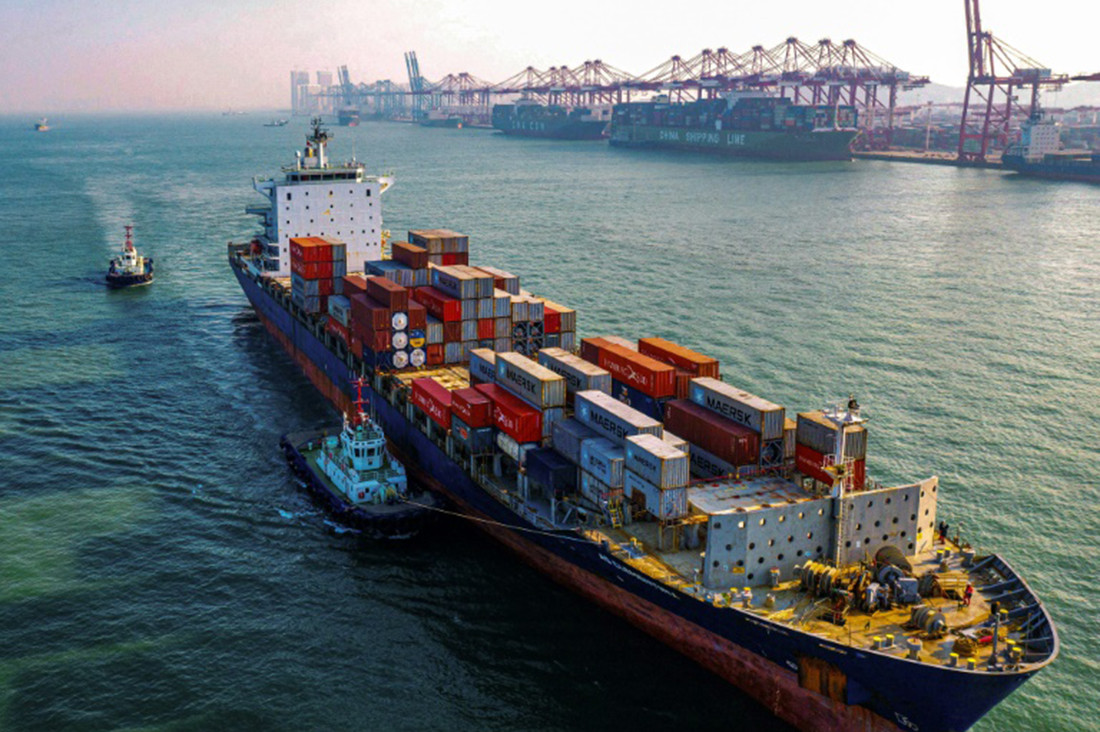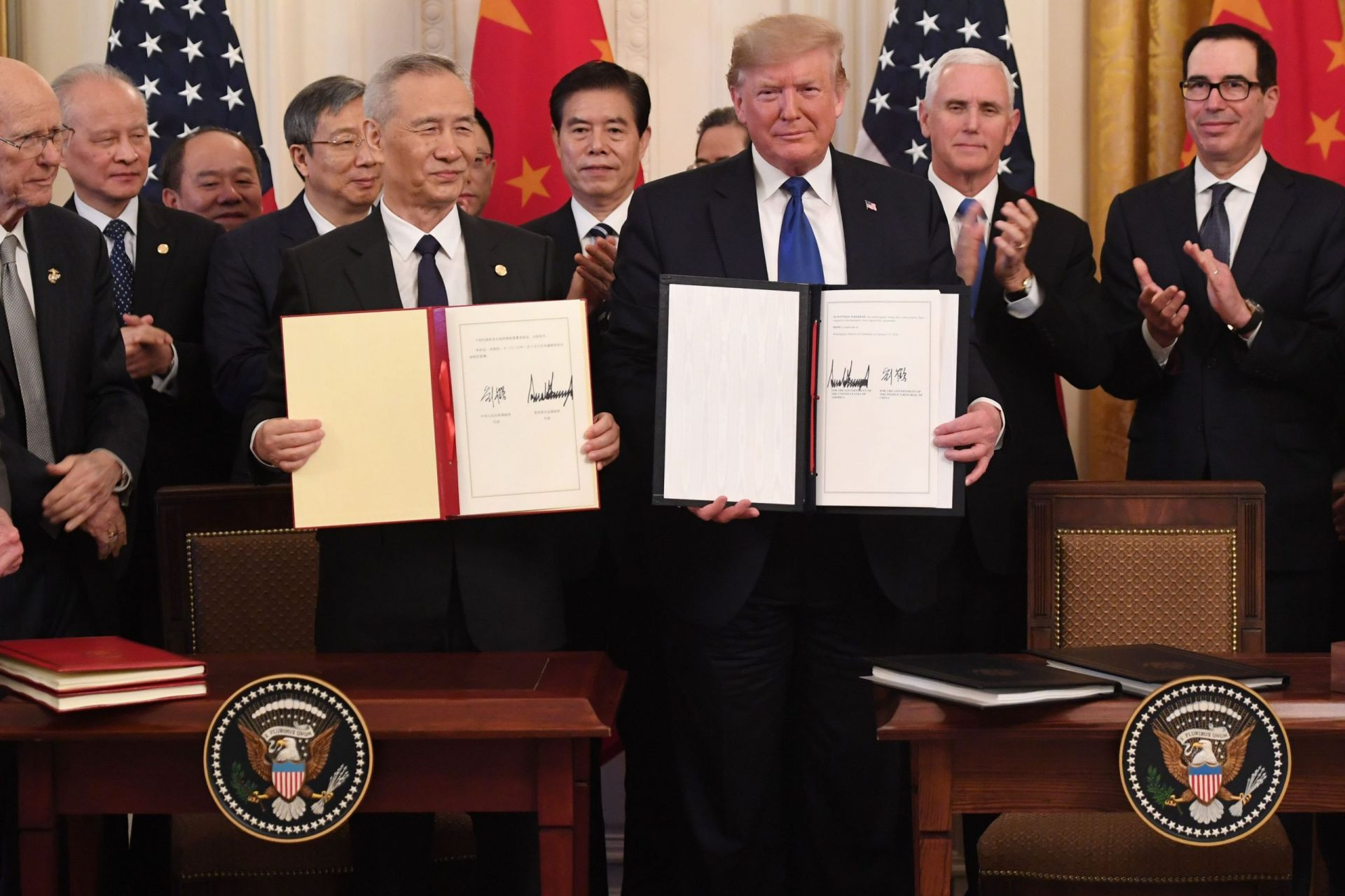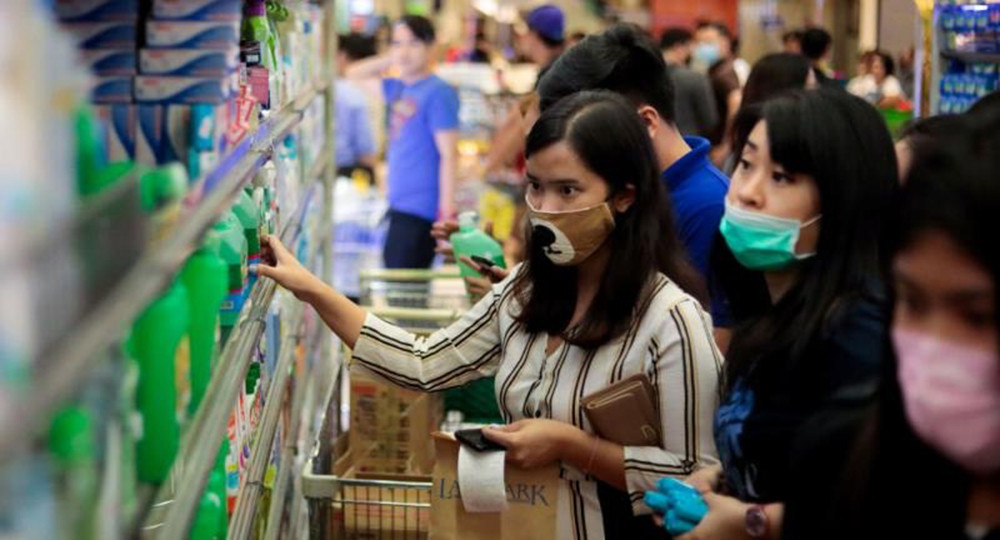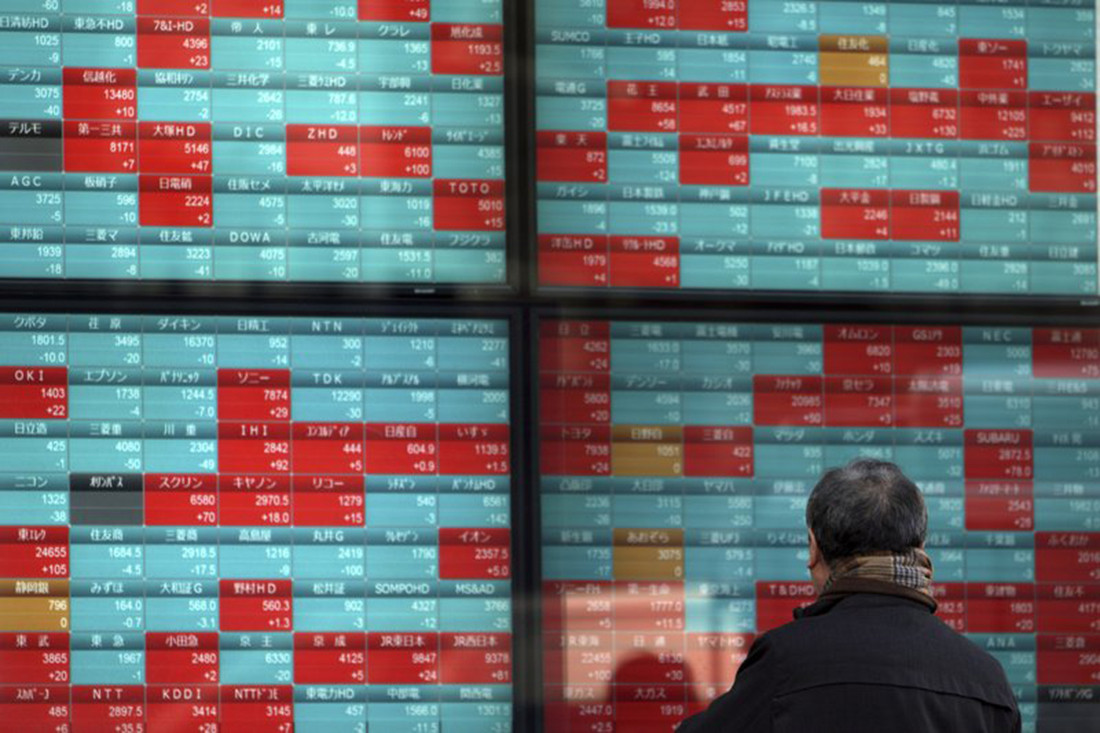'Carrot' in the China-US trade war
(Baonghean) - On February 6, China said it would halve tariffs on $75 billion worth of imported goods from the United States. This is considered part of a trade truce between Beijing and Washington and, according to AFP, was announced as Chinese authorities seek to stabilize markets affected by the Corona virus epidemic originating in Wuhan, China.
Cool down the trade war
The reductions were announced by the State Council Tariff Commission after Beijing and Washington signed a preliminary agreement last month aimed at easing a long-running trade war that has hurt the global economy. The surprise announcement also came a day after US President Donald Trump hailed the relationship between the two superpowers as “the best ever” in his State of the Union address. Observers said the move partly showed Beijing may want to continue entering the next phase of negotiations, towards a broader agreement.
 |
| The US and China signed an agreement in January calling for a “ceasefire” on the trade front. Photo: AFP |
According to AFP, China will cut tariffs by 5 and 10 percent on more than 1,700 products starting February 14, the same day Washington plans to halve tariffs on $120 billion worth of Chinese goods. Since September last year, many products in bilateral trade have been subject to tariffs, including fresh seafood, poultry, soybeans, tungsten lamps used in scientific and medical fields, and some types of aircraft.
Turning a new page to cool things down, China asserted that the move was aimed at “promoting the stable and healthy development of China-US economic and trade relations.” Referring to the tariff cuts offered by the US, China’s Customs Tariff Commission added: “In order to ease economic and trade frictions and expand cooperation in these areas, China has also made relevant adjustments. We hope to work with the US towards the eventual elimination of all tariff increases.”
The authorities of the world's second-largest economy also affirmed that they "hope that both sides will be able to comply with their agreement, make efforts to implement the relevant contents of each side, and increase confidence in the market." Although it is necessary to acknowledge the initial changes, the fact is that other retaliatory tariffs between the two countries have not moved at all.
 |
| Vice Premier Liu He (left) and President Donald Trump at the signing ceremony of the phase 1 trade agreement at the White House on January 15. Photo: AFP |
“Minimal impact”
It should be recalled that the two economic superpowers signed a “phase one” deal in January, which was supposed to ease tensions that had been like a string in their fierce bilateral trade war. At that time, Beijing agreed to buy an additional $200 billion in American goods over the next two years. Also in the phase one deal, the US side said it would cut half of the tariffs on $120 billion in Chinese goods to 7.5%, while Mr. Trump canceled the additional tariffs that were supposed to take effect from December last year. In fact, the announcement on Thursday came as China is struggling with a shortage of many resources due to the fight against the epidemic caused by the new strain of Corona virus, which has claimed the lives of more than 600 people and spread to more than 30,000 people in many countries around the world, concentrated in China.
This week, on February 4, a White House economic adviser said that the outbreak would delay Beijing's plans to purchase goods from the United States under the signed agreement. But on February 6, US Treasury Secretary Steven Mnuchin affirmed that the US administration "is not concerned about that." In a televised interview, he said: "I don't think there will be any problems arising from them implementing their commitments." Not only that, although according to observers, it is too early to measure the economic impact of the Corona virus epidemic, the head of the US treasury affirmed that "there is no doubt that the virus will have some impact on global growth and some impact on the United States."
 |
| China is struggling with a shortage of many resources as it fights the epidemic caused by the new coronavirus. Photo: Reuters |
Some public opinion also believes that the crisis caused by the outbreak, which forced China to impose travel restrictions in many cities, forcing millions of consumers to stay home during the Lunar New Year, which is usually crowded and busy with shopping, is expected to affect the country's already struggling economy, especially when companies and factories have delayed returning to work because of the epidemic. In a move to show efforts amid the crisis last weekend, Beijing announced that US imports that can be used in the fight against the Corona virus will also be exempt from retaliatory tariffs imposed in the bilateral trade war.
“Sweet Carrot”
Stephen Innes, chief market strategist at AxiCorp, said the tariff cuts were “a small but sweet carrot.” He explained that, given the economic turmoil caused by the coronavirus, it was reasonable to assume that China wanted to start negotiations with the US. Similarly, Xu Xiaochun, an economist at Moody’s Analytics, said that the tariff cuts were understandable as China was looking to import more US goods as part of the phase one deal, but the timing was not entirely coincidental. “It’s probably related to market sentiment,” he said, noting that stock indexes in Shanghai and Shenzhen fell earlier in the week as markets reopened after a long holiday and for the first time reacted to news of the coronavirus.
 |
| Asian stock markets fluctuated after news that China reduced tariffs on imports from the US. Photo: AP |
According to economist Xu Xiaochun, perhaps this is the time for China to signal that it is trying to ease tensions and improve trade relations, thereby hoping to reduce financial volatility in the stock market.
However, the situation is unlikely to have any significant improvement, especially when on the US side, Mr. Mnuchin still affirms that most of the taxes will remain unchanged, considering it as a "motivation" to urge Beijing to continue engaging in the next phase of the negotiation round.
